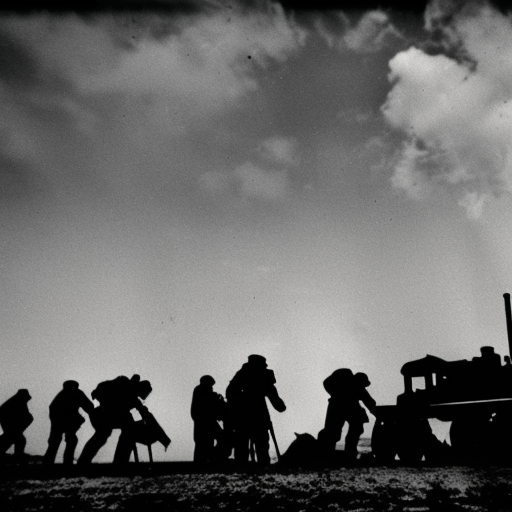Summary: 1981 Warning Strike in Poland
In 1981, Poland experienced a significant warning strike that marked a turning point in the country’s history. The strike was a response to the deteriorating economic conditions, political repression, and the government’s failure to address the demands of the trade unions. Led by the Solidarity movement, the strike paralyzed the country and set the stage for a series of events that would eventually lead to the declaration of martial law.
The Background: Economic Crisis and Political Repression
Poland was grappling with a severe economic crisis in the late 1970s and early 1980s. The country faced skyrocketing inflation, food shortages, and a growing foreign debt. The government’s attempts to address these issues through price increases and austerity measures only exacerbated the situation, leading to widespread discontent among the population.
At the same time, political repression was on the rise. The ruling Polish United Workers’ Party (PUWP) sought to suppress dissent and maintain control over the country. Independent trade unions, such as Solidarity, emerged as a powerful force advocating for workers’ rights and political reforms. Solidarity, led by Lech Walesa, gained significant support and became a symbol of resistance against the oppressive regime.
The Warning Strike: August 1981
On August 14, 1981, Solidarity called for a nationwide warning strike to protest against the government’s economic policies and demand improvements in living conditions. The strike was intended to send a strong message to the authorities and demonstrate the power of the trade unions.
The strike quickly gained momentum and spread across the country. Factories, mines, and other workplaces came to a standstill as workers walked off their jobs. The strike paralyzed the economy, causing widespread disruption and forcing the government to take notice.
The Government’s Response
The Polish government, under General Wojciech Jaruzelski, initially attempted to negotiate with Solidarity and address some of their demands. However, the negotiations quickly broke down as the government refused to make significant concessions. Instead, they began preparing for a more aggressive response to the growing unrest.
Declaration of Martial Law
On December 13, 1981, the Polish government declared martial law, effectively suspending civil liberties and imposing strict military control over the country. The move was aimed at crushing the Solidarity movement and maintaining the government’s grip on power.
Under martial law, thousands of Solidarity activists and opposition figures were arrested, including Lech Walesa. The government shut down independent media outlets, censored information, and suppressed any form of dissent. The country was placed under a strict curfew, and the military was given sweeping powers to maintain order.
The Aftermath and Legacy
The declaration of martial law marked a dark period in Polish history. The government’s crackdown on Solidarity and the imposition of military rule led to widespread international condemnation. However, Solidarity remained a symbol of resistance, and its struggle for workers’ rights and political reforms continued underground.
It was not until 1989, after years of repression and struggle, that the Polish government finally agreed to negotiate with Solidarity. This eventually led to the Round Table Talks and the peaceful transition to democracy in Poland.
The 1981 warning strike in Poland served as a catalyst for change, highlighting the deep-seated grievances of the population and the government’s unwillingness to address them. It set the stage for the eventual downfall of the communist regime and the emergence of a new era in Polish history.












